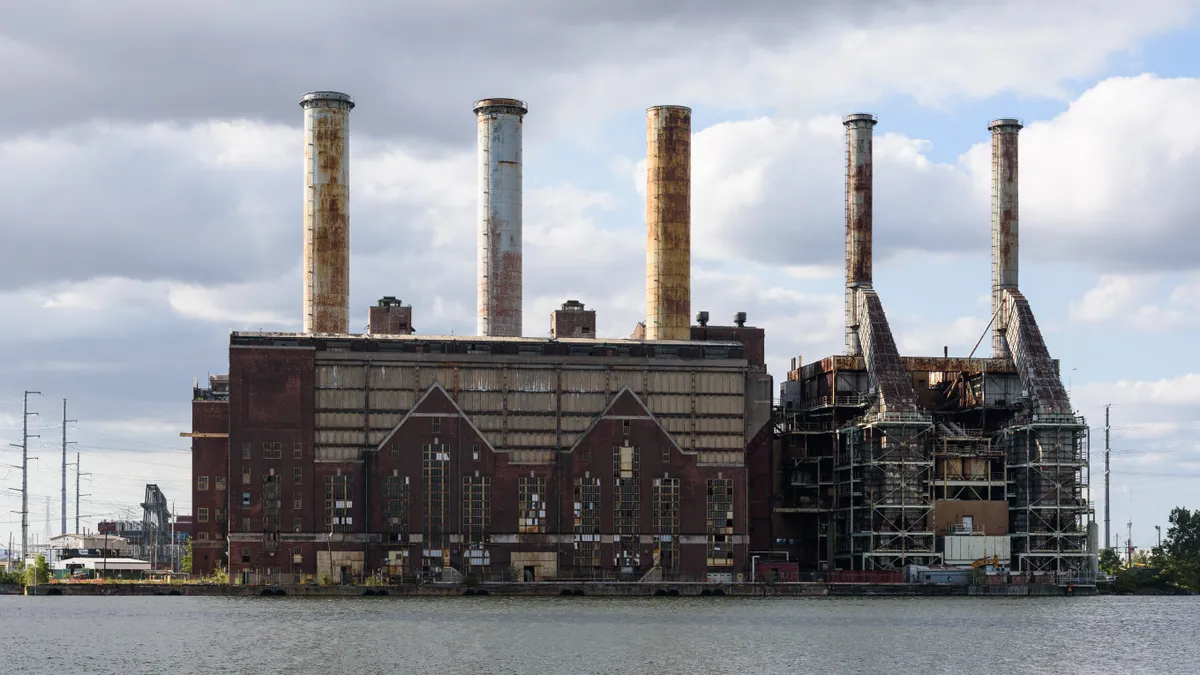Dive Brief:
- Public Service Enterprise Group (PSEG) on Thursday unveiled an agreement to sell its 6,750 MW fossil-fuel plant portfolio for $1.92 billion to ArcLight Capital. The deal is expected to close either late in the fourth quarter of 2021 or the first quarter of 2022, PSEG said in a press release.
- The deal includes 13 generation units in PSEG's home state of New Jersey, as well as New York, Connecticut and Maryland. Subsidiaries of ArcLight Energy Partners Fund VII, a fund controlled by ArcLight Capital, are buying the portfolio.
- The sale comes a year after PSEG launched a strategic review of its non-nuclear power plants. "This transaction continues our evolution toward a clean energy infrastructure-focused company that will enable our increasingly low-carbon economy," Chairman, President and CEO Ralph Izzo said in a press statement.
Dive Insight:
The sale of "PSEG Fossil," the name the utility company has given to its multistate portfolio of fossil-fuel power plants, comes on the heels of another major PSEG sale.
The New Jersey-based utility this spring rolled out a deal to sell its 467 MW dc Solar Source portfolio to Quattro Solar, LLC, an affiliate of LS Power.
In its announcement of the sale on May 5th, PSEG estimated the "net carrying value" of the 25 solar facilities in the portfolio at approximately $500 million.
Combined with the sale of PSEG Fossil, the two sales will reap "approximately $2.15 billion of after-tax net proceeds," the company said Thursday.
However, the two sales are connected more than just by the boost they will give to PSEG's bottom line.
Rather, the deals are part of a larger push by PSEG to decarbonize its operations by doubling down on its nuclear plants and investing heavily in offshore wind farms.
Just a few weeks before announcing the sale of its Solar Source portfolio in May, PSEG cut a deal to buy a 25% stake in the 1,100 MW offshore project Ocean Wind, off the coast of New Jersey.
The agreement, announced Thursday, to sell its portfolio of 13 fossil fuel generating units represents another step toward its decarbonization goals, PSEG said.
While the sale was the result of a separate, "Strategic Alternatives" process, PSEG said the deal has nevertheless paved the way for the utility to make good on its pledge to reach net-zero emissions from its operations by 2030.
PSEG on June 24 announced it would be pushing up its "net-zero climate vision" from its original goal of 2050 to 2030. In addition, PSEG expanded its commitment beyond net-zero to "include Scope one direct greenhouse gas emissions, and Scope two indirect greenhouse gas emissions from operations at both PSEG Power and PSE&G," Izzo told analysts on a recent second quarter earnings call.
In May, PSEG hit another milestone, retiring its last coal-fired power plant, Bridgeport Harbor Station Unit 3.
"PSEG continues to make tangible progress on our own decarbonization and ESG goals," Izzo told analysts.
Meanwhile, PSEG is also relying heavily on the three nuclear plants in New Jersey it has a stake in – one which it owns outright and two others which it shares ownership with Exelon – to meet those decarbonization goals as well.
In a key move, the New Jersey Board of Public Utilities (BPU) voted on April 18 to approve a three-year extension of the annual $300 million subsidy for the Hope Creek, Salem One and Salem Two nuclear plants.
"Our utility, a clean energy infrastructure-focused business, will be complemented by a significantly contracted, carbon-free generating portfolio, consisting of our nuclear fleet and investments and opportunities in regional Offshore Wind," Izzo said during the second quarter earnings call.














